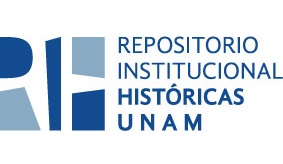The Changing Futures of the Maya and their Anthropologists: Negotiating the Present in the Yucatan Peninsula
Resumen
"Este artículo examina las conversaciones entre campesinos hablantes de maya en dos regiones de la península de Yucatán y los antropólogos mexicanos y estadounidenses que los visitaron a partir de la década de 1970, desde la perspectiva de sus diferentes concepciones del presente y sus expectativas respecto al futuro. Su objetivo es analizar cómo las nociones occidentales de la historia, que han sido transformadas dramáticamente por la crisis reciente en el régimen de historicidad modernista, han interactuado con las propias y cambiantes concepciones de estos campesinos respecto al cambio histórico. Como tal presenta una lectura e interpretación históricas de los textos antropológicos. Utilizando los conceptos de ‘cosmopolítica’ y ‘diplomacia’, desarrollados por los estudios de la ciencia, construye un andamiaje teórico para comprender la manera en que los antropólogos han interpretado la situación presente y las perspectivas futuras de los campesinos hablantes de maya, y cómo ellos, a su vez, han interpretado sus interacciones con estos visitantes, con el estado mexicano y con otras fuerzas globales de acuerdo a sus experiencia histórica particular, configurada en una sucesión de periodos de servidumbre y libertad. A través de tales negociaciones, ambos grupos construyeron diferentes ‘presentes comunes’ mutuamente comprensibles que les ayudaban a interpretar sus circunstancias compartidas. Este análisis conduce a la definición de una relatividad histórica que muestra cómo puede haber intercambios significativos entre historicidades diferentes sin que una, ni siquiera la noción occidental de la historia, absorba o interprete completamente a las otras." "This article examines the conversations between Maya-speaking villagers in the Yucatan peninsula and Mexican and American anthropologists that have visited them since 1970 from the point of view of their different perceptions of the present and expectations for the future. Its aim is to analyze how the Western notions of history, which have been dramatically transformed with the recent crisis of the Modernist régime d’historicité, have interacted with the villagers’ own dynamic conceptions of historical change. As such it presents a historical reading and interpretation of anthropological texts. Using the concepts of ‘cosmopolitics’ and ‘diplomacy’, as developed by science studies, it constructs a theoretical framework to understand how the anthropologists interpreted the situation and prospects of the Maya-speaking peasants and how they in turn interpreted their interaction with their visitors, and with the Mexican state and other global forces, according to their particular historical experiences of the succession of cycles of servitude and freedom. Through these negotiations both parties constructed different ‘common nows’, mutually understandable presents that allowed them to apprehend their shared situation. This analysis leads to the definition of a historical relativity that shows how meaningful exchanges between different historicities can take place without one, including the Western notion of history, ever engulfing or fully explaining the other."
Cómo citar
Navarrete Linares, Federico, “The Changing Futures of the Maya and their Anthropologists: Negotiating the Present in the Yucatan Peninsula”, Indiana, Ibero-Amerikanisches Institut, Stiftung Preußischer Kulturbesitz, Berlín, v. 32, 2015, p. 153-178.Consulte el número/libro completo
http://dx.doi.org/10.18441/ind.v32i0Aparece en las colecciones
Excepto si se señala otra cosa, la licencia del ítem se describe como http://creativecommons.org/licenses/by-nc-nd/4.0




